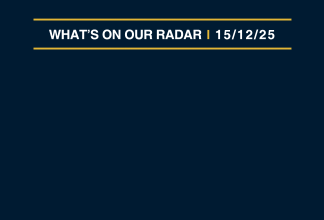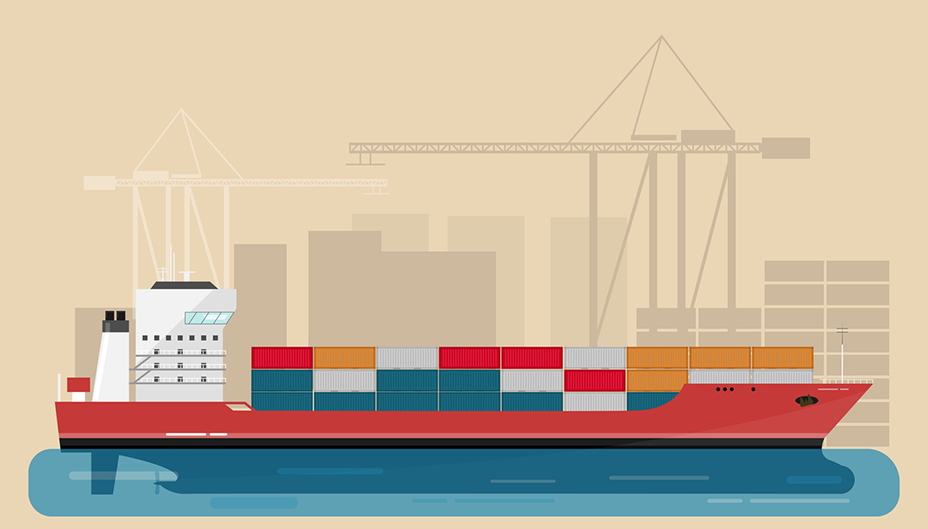RBC Economics Gauges Coronavirus Supply-Chain Risks
Written by The Content Team
Published on March 4, 2020
minute read
Share:
Ripple effects of stalled productivity in China due to the coronavirus outbreak are being felt globally — including here in Canada — as fears over supply-chain disruptions grow.
However, while Canada's direct supply-chain exposure to China is significant, it's still limited, according to a recent report from RBC Economics.
"Of the regions worst-hit to-date by COVID-19, China is by far the most significant import source for Canada. Yet much of Canada's imports from China are finished goods (notably cellphones), which have limited impact on near-term domestic production," the report says. "Imports of intermediate inputs matter more for production, and about 10 per cent of total Canadian imports of intermediate products came from China at last count." Intermediate inputs are goods used in the production process to create finished products.
China is Canada's second-largest source of imported production inputs behind the U.S., which accounts for 50 per cent, RBC Economics says.
As for Canada's exposure to other countries feeling the effects of COVID-19, RBC Economics says South Korea, Italy and Japan together account for about 4 per cent of total intermediate product imports.
Still, the longer the outbreak lasts and the more countries it affects, the more impact intermediate-goods shortages could have on industrial output in Canada. "At this point we still see that possibility as more of a downside risk than a best base-case assumption," RBC Economics says.
Find the full RBC Economics report, titled Gauging Canadian Coronavirus Supply Chain Vulnerabilities, at rbc.com/economics.
For a roundup of coronavirus coverage, plus timely reminders and tools that can help when markets are volatile, click here.
RBC Direct Investing Inc. and Royal Bank of Canada are separate corporate entities which are affiliated. RBC Direct Investing Inc. is a wholly owned subsidiary of Royal Bank of Canada and is a Member of the Canadian Investment Regulatory Organization and the Canadian Investor Protection Fund. Royal Bank of Canada and certain of its issuers are related to RBC Direct Investing Inc. RBC Direct Investing Inc. does not provide investment advice or recommendations regarding the purchase or sale of any securities. Investors are responsible for their own investment decisions. RBC Direct Investing is a business name used by RBC Direct Investing Inc. ® / ™ Trademark(s) of Royal Bank of Canada. RBC and Royal Bank are registered trademarks of Royal Bank of Canada. Used under licence.
© Royal Bank of Canada 2025.
Any information, opinions or views provided in this document, including hyperlinks to the RBC Direct Investing Inc. website or the websites of its affiliates or third parties, are for your general information only, and are not intended to provide legal, investment, financial, accounting, tax or other professional advice. While information presented is believed to be factual and current, its accuracy is not guaranteed and it should not be regarded as a complete analysis of the subjects discussed. All expressions of opinion reflect the judgment of the author(s) as of the date of publication and are subject to change. No endorsement of any third parties or their advice, opinions, information, products or services is expressly given or implied by RBC Direct Investing Inc. or its affiliates. You should consult with your advisor before taking any action based upon the information contained in this document.
Furthermore, the products, services and securities referred to in this publication are only available in Canada and other jurisdictions where they may be legally offered for sale. Information available on the RBC Direct Investing website is intended for access by residents of Canada only, and should not be accessed from any jurisdiction outside Canada.
Explore More

7 Ways to Get Ahead Financially in 2026
How you might invigorate your finances and put your money to work more intentionally this year
minute read

Economic Outlook: Uncertainty is Here to Stay, So What's Next?
Takeaways from the Economic Club of Canada’s Annual Event
minute read

3 things: Week of December 15
What the Inspired Investor team is watching this week
minute read
Inspired Investor brings you personal stories, timely information and expert insights to empower your investment decisions. Visit About Us to find out more.







